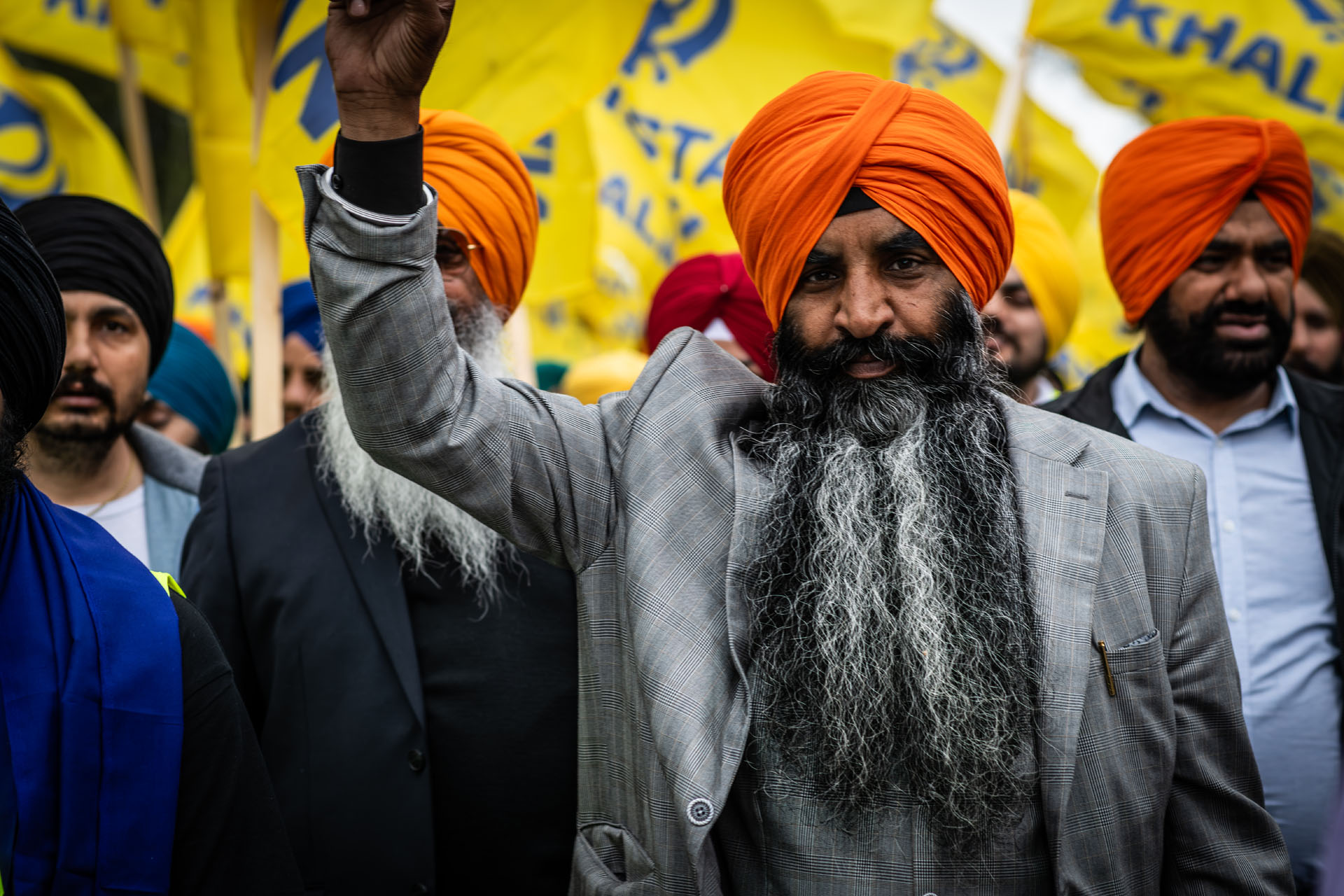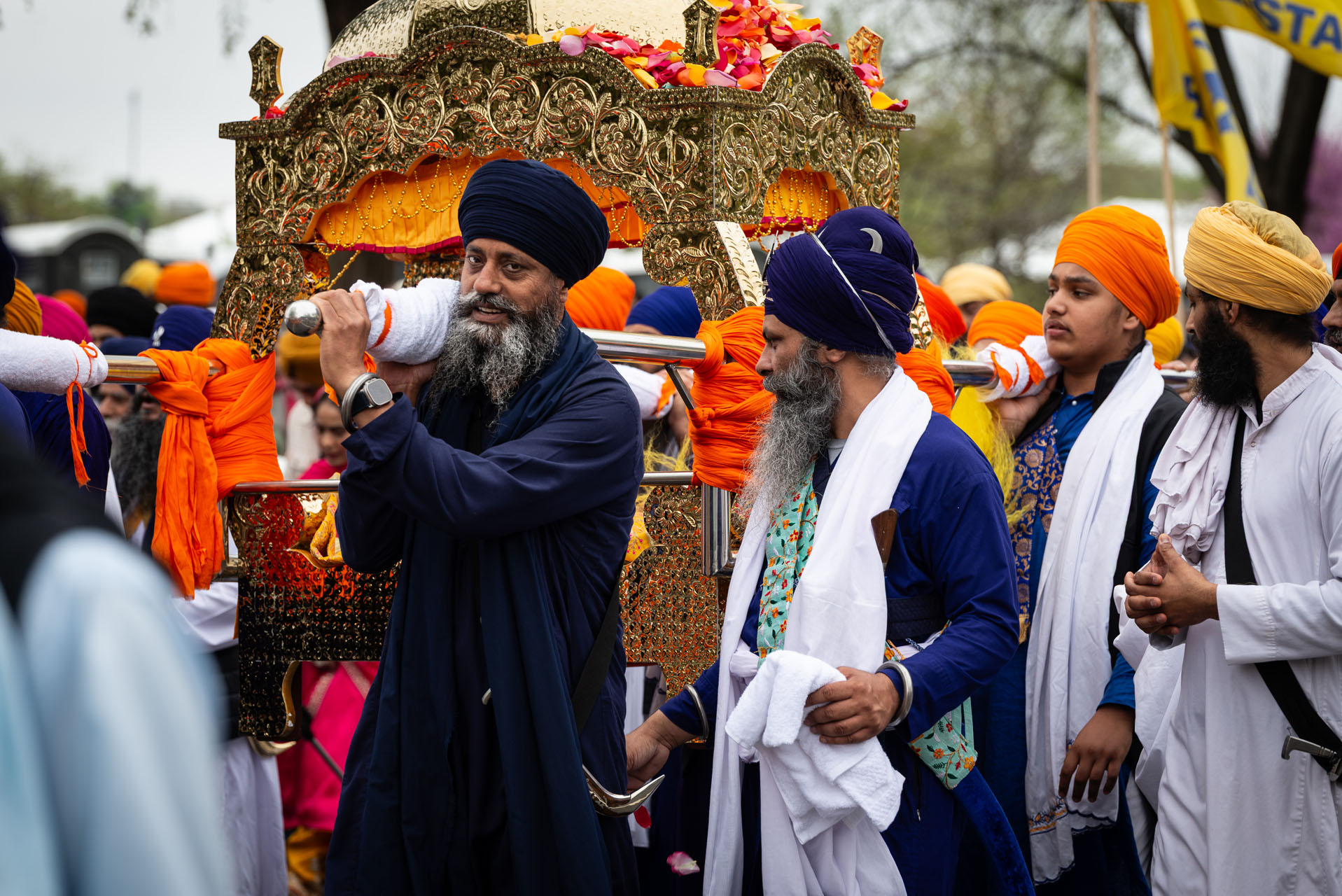On April 5, 2025, supporters of the Khalistan movement gathered in Washington, D.C., to demonstrate in favor of an independent Sikh homeland. Marching through the streets toward the U.S. Capitol, participants carried Khalistan flags and wore symbols of the movement, making a visible and vocal call for global recognition of their cause. The event was peaceful and organized independently of other protests occurring in the city that day, including unrelated demonstrations targeting U.S. President Donald Trump.
The Khalistan movement is a long-standing political and religious campaign aimed at establishing a sovereign Sikh state in the Punjab region of northern India. Its origins date back to the mid-20th century, but the movement gained significant traction in the 1980s during a period of heightened conflict between Sikh groups and the Indian government. Though the armed insurgency largely subsided by the 1990s, the movement persists among sectors of the Sikh diaspora, particularly in North America, the United Kingdom, and Australia.

Groups advocating for Khalistan argue that Sikhs are a distinct people with their own language, religion, and cultural heritage, and therefore deserve self-determination. Organizations such as Sikhs for Justice have promoted referendums and international advocacy efforts, though they are banned in India and labeled as extremist by the Indian government. Despite official opposition, support for the movement remains vocal among diaspora communities, who view it as a legitimate fight for rights and identity.
The issue has gained renewed international attention due to serious allegations involving targeted killings of Khalistan activists abroad. In the United States, federal prosecutors recently charged Indian national Nikhil Gupta and an Indian government employee in connection with a foiled plot to assassinate Gurpatwant Singh Pannun, a U.S. citizen and prominent Khalistan figure. Prosecutors alleged that the plan involved hiring a hitman to carry out the killing in New York City.

A similar case in Canada further elevated concerns. In June 2023, Hardeep Singh Nijjar, another supporter of the Khalistan movement, was assassinated outside a Sikh temple in British Columbia. Canadian Prime Minister Justin Trudeau later stated that there were "credible allegations" linking Indian agents to Nijjar’s killing. These incidents have led to diplomatic tensions between India and both Canada and the United States, resulting in public rebukes and the expulsion of diplomats. Together, they have cast a spotlight on the growing international dimensions of the Khalistan issue and the risks faced by its advocates abroad.
